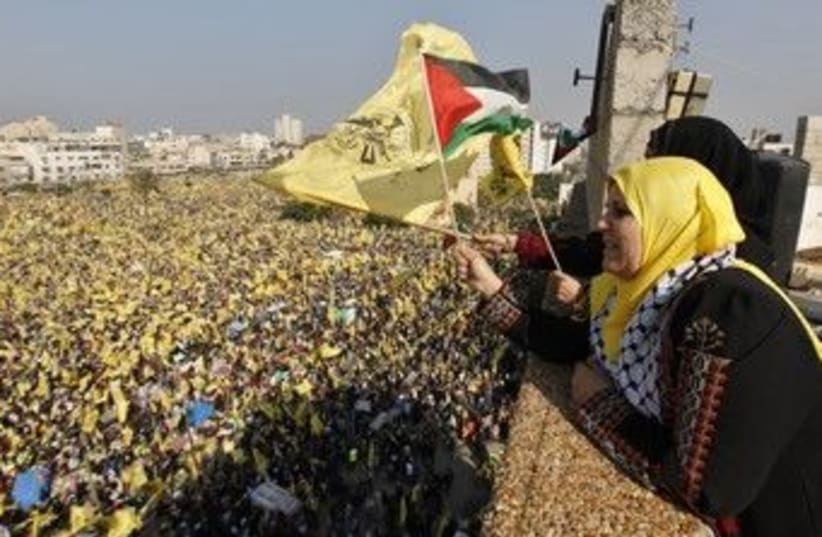RAMALLAH/GAZA - Palestinians evinced weary indifference on Tuesday as Israelis voted in an election set to return Benjamin Netanyahu to the Prime Minister's office, likely accompanied by a coalition further right than the one he has led for almost four years.
"Regardless of who wins, the result is the same: Israelis want this land but not the people," said Ahmed Amro, a professor at Al-Quds Open University in Ramallah, the West Bank's capital.
"The Palestinians should have a plan to face this situation we're in, and not put much stock in who wins," he said.
Israel has occupied the West Bank since capturing it in the 1967 Six-Day War, along with east Jerusalem, the Gaza Strip and the Golan Heights. Israel withdrew from Gaza in 2005, but has kept strict curbs on movement in and out of the coastal strip.
"We hope this election will lead to peace, to the recognition of the Palestinian state and to the rights of the Palestinian people," said Gaza physician Hussein Ekelan. "But all indications say Netanyahu will win, and this will be a big disaster," he said.
Parliamentary polls in 2006 gave the Islamist Hamas group a surprise win, shocking Israel and Western countries who consider it a terrorist organization, and leading to a brief civil war with its secular Fatah rivals in Gaza the following year.
Entrenched in Gaza, Hamas has not allowed elections in six years and expelled an election committee meant to pave the way for new polls as part of a stalled unity plan in 2012.
Fatah held local polls in the West Bank which Hamas boycotted, leading to a disappointing turnout. Palestinian President Mahmoud Abbas, who is also Fatah's leader, has outstayed his term by three years since he was elected in 2005.
While Palestinians are united in dismissing Israel's elections, their internal political rifts remain deep. Hamas rejects Israel's right to exist and opposes U.S.-sponsored negotiations, advocating armed struggle instead. Abbas has put his faith in diplomacy, but neither strategy has brought Palestinians much closer to achieving their national aspirations.
Asked of their hopes for Israel's polls, three grocers in a Ramallah store all mumbled: "What does it matter?"
"Labor, Likud, there's no difference," Mohammad Zaid said, mentioning the main leftwing and rightwing Israeli parties.
"Me, I care what happens on the street here in Palestine, and I don't like what Hamas does. I vote yellow, I vote for the keffiyeh," he said, pointing to his black-and-white chequered scarf, a symbol of Fatah along with its trademark colour.
"You're being a bit partisan," his bearded colleague said.
"You're with Hamas," his friends retorted, laughing.
